A traditional gets a brand-new coauthor and a brand-new technique: Developmental Biology, 11th Edition, (PDF) keeps the outstanding writing, precision, and interest of the Gilbert Developmental Biology 11e PDF ebook, simplifies it, includes ingenious electronic supplements, and produces a brand-new book for those mentor Developmental Biology to a brand-new generation. Several brand-new modes of mentor are utilized in the brand-new Gilbert and Barresi etextbook. The videos describing advancement– in addition to those from Mary Tyler’s Vade Mecum– are referenced throughout the book, and numerous other important brand-new components have actually been included. Additional updates in the 11th edition consist of: * Greatly broadened protection of neural advancement, making up a system unto itself. * An increased focus on stem cells, which are covered thoroughly and early in the book. * Coverage of brand-new experiments on morphogenesis and distinction, in addition to brand-new methods such as CRISPR. * Sex decision and gametogenesis, rather of being near completion of the volume, are in advance, previous to fertilization. For Students Companion Website Significantly boosted for the l lth edition, and referenced throughout the etextbook, the Developmental Biology 11e Companion Website offers biology trainees with a series of appealing resources, in the following classifications: * NEW Dev Tutorials: Professionally produced video tutorials, provided by the etextbook’s authors, enhances crucial principles. * NEW Watch Development: Putting principles into action, these useful videos reveal genuine- life developmental biology procedures. * Web Topics: These substantial subjects offer more details for innovative university student, philosophical, historic, and ethical point of views on problems in developmental biology, and links to extra online resources. * NEW Scientists Speak: In these concern- and- response interviews, developmental biology subjects are checked out by leading specialists in the field. * Plus the complete bibliography of literature pointed out in the etextbook (most connected to their PubMed citations). DevBio Laboratory: Vade Mecum 3 Included with each brand-new copy of the book, Vade Mecum 3 is an interactive site that assists university student comprehend the organisms gone over in the course, and prepare them for the laboratory. The website consists of videos of developmental procedures and lab methods, and has chapters on the following organisms: slime mold (Dictyostelium discoideum), planarian, sea urchin, fruit fly (Drosophila), chick, and amphibian. For Instructors Instructor’s Resource Library (offered to certified adopters) The Developmental Biology, Eleventh Edition, Instructor’s Resource Library consists of the list below resources: * NEW Developing Questions: Answers, recommendations, and suggestions for additional reading are offered so that you and your trainees can check out the Developing Questions that are presented throughout each chapter. * Textbook Figures & & Tables: The book’s figures, images, and tables are offered in JPEG (high- and low- resolution) and PowerPoint formats. All images have actually been enhanced for outstanding legibility when predicted in the class. * Video Collection: Includes video sectors illustrating a large range of developmental procedures, plus sectors from DevBio Laboratory: Vade Mecum 3, and Differential Experessions2. * Vade Mecum 3 PowerPoints: Chick serial areas and entire installs, offered in both identified and unlabeled variations, for usage in developing tests, examinations, or in- class workouts. * NEW Case Studies in Dev Bio: This brand-new collection of case research study issues accompanies the Dev Tutorials and offers trainers with all set- to- usage in- class active knowing workouts. The case research studies promote deep knowing in developmental biology by supplying trainees a chance to use course material to the vital analysis of information, to produce hypotheses, and resolve unique issues in the field. Each case research study consists of a PowerPoint discussion and a trainee handout with accompanying concerns. 978- 1605354705, 978- 1605355979, 978- 1605357386, 978- 1605356044 NOTE: THIS PRODUCT ONLY INCLUDES THE PDF OF THE BOOK. NO ONLINE CODES/ONLINE ACCESS IS INCLUDED IN THIS PURCHASE
Sale!
Developmental Biology (11th Edition) – PDF
eBook Details
- Authors: Scott F. Gilbert, Michael J.F. Barresi
- File Size: 149 MB
- Format: PDF
- Length: 810 pages
- Publisher: Sinauer Associates/Oxford University Press; 11th edition
- Publication Date: May 31, 2016
- Language: English
- ASIN: 1605354708
- ISBN-10: 1605354705, 1605355976, 1605357383, 1605356042
- ISBN-13: 9781605354705, 9781605355979, 9781605357386, 9781605356044
Original price was: $123.96.$13.00Current price is: $13.00.



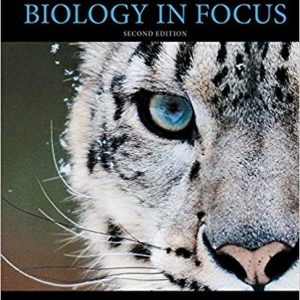
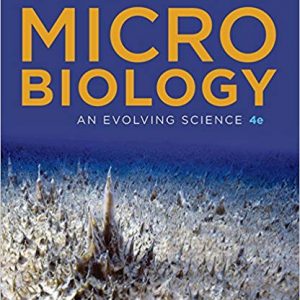
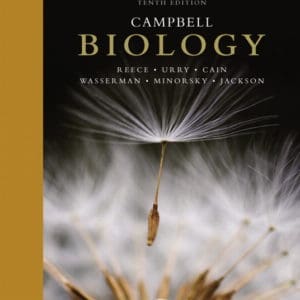
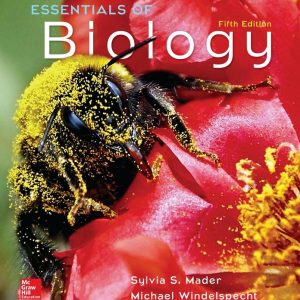



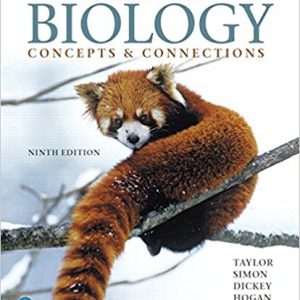
Reviews
There are no reviews yet.